Malcolm MacEwan was one of the few men in the Airborne Forces to serve in both the First and Second World Wars during a long and particularly distinguished military and civilian career.
He was born on the Isle of Harris in the Outer Hebrides in 1894. When he was 18 years old, he joined the Territorial Army as a member of the Ross Mountain Battery and volunteered for overseas service when war was declared in 1914. He served at Gallipoli in 1915, and was later commissioned in 1916. After a spell in Salonika, Greece he transferred to the fledgling Royal Flying Corps firstly as an observer, and later qualified as a pilot. During the First World War he was awarded the Distinguished Flying Cross and also a Mention in Despatches.
After the Armistice in 1918, he continued in the Services and joined Gen Deniken’s 'White Army' fighting against the new revolutionary goverment in Russia, where he was awarded the Russian Order of St George.
Finally demobbed in 1920 he trained as a Doctor and after qualifying he moved to Ipswich and worked in General Practice. He remained part of the Territorial Royal Artillery however, and was CO of the 58th Medium Regiment RA (TA) by 1939. Remarkably, he also found time to be a Town Councillor for a period of six years, and set up the 1st (Ipswich) Air Duty Division, of the St John’s Ambulance.
In January 1940, with the Second World War underway, he was soon back in action. 58th Medium Regiment RA went to France under his command and became part of the BEF, before the eventual evacuation of Allied troops from Dunkirk. Shortly after his return to England, he was transferred as Commander Royal Artillery (CRA) to the Dorset Division - a position he held until early 1942. At this point he was specially selected to transfer to the Royal Army Medical Corps, to serve as the first Commanding Officer of a Parachute medical unit - the newly-formed 16th Parachute Field Ambulance RAMC, raised at Hardwick Hall in Derbyshire.
Major P R Wheatley, his newly-appointed Second-in-Command (2-i-c) went to the railway station at Chesterfield to meet him and recalls an imposing figure alighting from the train immaculately dressed and sporting an array of Great War medals beside his Russian Order of St George. It might have seemed a 'comedown' for a Gunner Brigadier to be posted to a Field Ambulance. This was intended to be a very special embryo unit however, and needed a very special CO accordingly. It was felt Lt-Col MacEwan fitted the bill exactly.
His passion for medal ribbons - which had to be spotless - along with a colourful personality led him to be affectionately known as ‘Technicolor’ . His upright stance, his immaculate dress, deliberate mannerisms and carefully chosen words all inspired confidence. A strict disciplinarian, he also possessed a keen sense of humour and a kindly disposition which endeared him to his men. He was already distinguished war veteran with considerable experience, and a man of great courage who set a fine example. He was 47 years old when he did his parachute training with all the 'youngsters'. In a very short time he had under his command a well-trained and efficient unit, with extremely high morale.
Between April and November 1942, 16 Parachute Field Ambulance RAMC undertook much training to get them ready for their new Airborne role, some of which included adventure training in Devon. Lt Col MacEwan decided that to get back to their new home at Bulford, on Salisbury Plain, they would march the 140 miles or so. This was duly accomplished and may well have stood the unit in good stead prior to their first taste of action overseas in the Tunisian campaign.
A member of 16 PFA who later became Chief Clerk of the unit later recalled:
‘The first CO we had was Lt-Colonel MacEwan and as his name indicates, he was a Scot, and rightly very proud of the fact. When signing his surname without his initials, telling me as he did so, that he was ‘The MacEwan of the MacEwans’, the laird, and so needed no initials. Be that as it may, we were all proud of our Commanding Officer, and most of us suffered his little foibles gladly, and secretly we delighted in them. One of these was his fondness for the pipes, bag-pipes of course, and we were fortunate to have a really excellent piper in our ranks, S/Sgt 'Jock' Anderson.
There were those in the unit, Londoners, irrepressible Cockneys at heart, who professed to hate and resent the pipes, and who at various times got up to a trick or two to get rid of them. But to be awakened by the sound of those pipes, on a misty summer morning, in some lovely but lonely countryside, on our march from Bulford to Devon, was something that I will always treasure. They were used too, in our unit, in place of the more usual bugle calls, and ‘Cock o'the North’ meant ten minutes to parade time, and ‘Scotland the Brave’ was our fall-in [...]'
Lt Col MacEwan led 16 PFA through many actions in North Africa, their finest hour probably being on the slopes of Djebel Mansour in February 1943. He was awarded the DSO and the OBE for his services in North Africa.
In June 1943, he was promoted Colonel and moved as Assistant Director Medical Services (ADMS) to the 6th Airborne Division, then based in England. He remained in this post until the end of the war, taking an active part in the training of the medical services for the Normandy invasion. He dropped into Normandy on the morning of 6th June 1944. He also took part in the Ardennes campaign and Operation Varsity, the assault crossing of the Rhine in March 1945. He remained with the Division during the advance to the Baltic and was awarded a second DSO for services during this time.
Col MacEwan was finally demobbed in 1946 and returned to General Practice in Ipswich, where he remained until he retired in 1976 at the age of 81(!) He died in August 1985 at the age of 85. His substantial medal set has recently been restored and is currently awaiting formal redisplay at the Airborne Assault Museum, Duxford.
From text supplied by Niall Cherry.
Read More
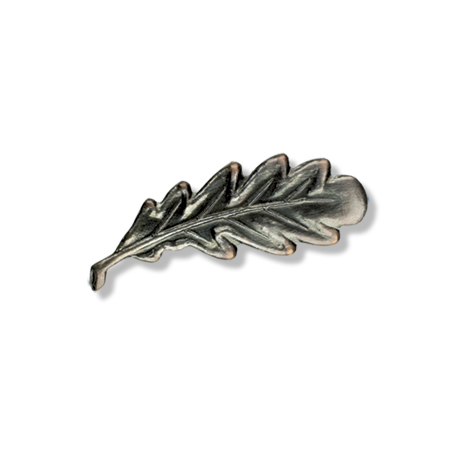
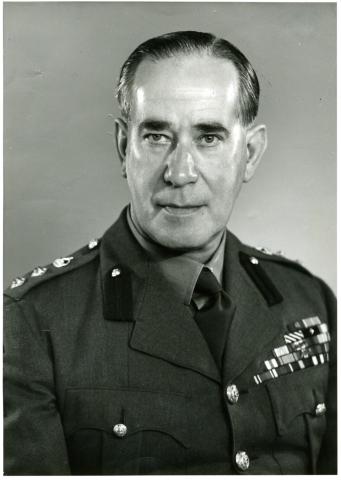
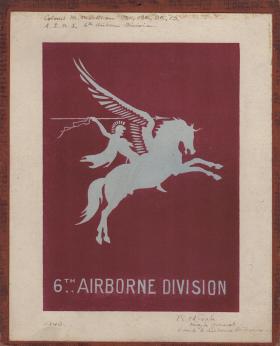
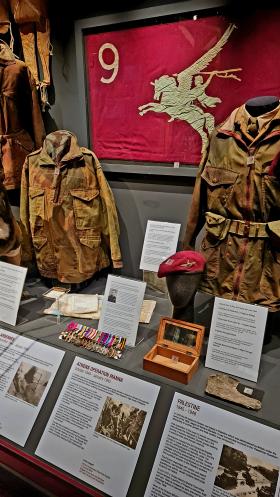
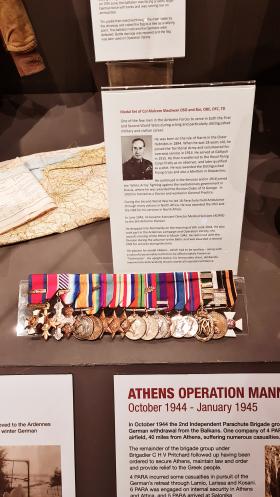
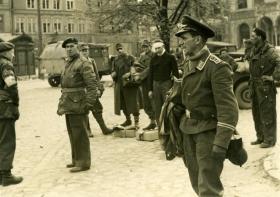
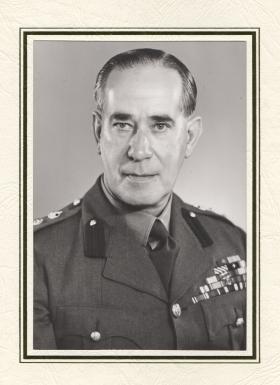
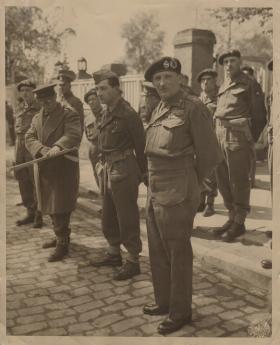
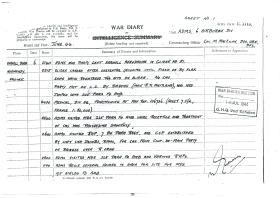
Latest Comments
There are currently no comments for this content.
Add Comment
In order to add comments you must be registered with ParaData.
If you are currently a ParaData member please login.
If you are not currently a ParaData member but wish to get involved please register.